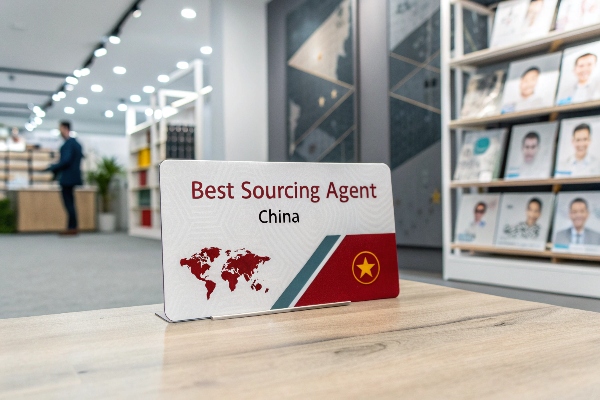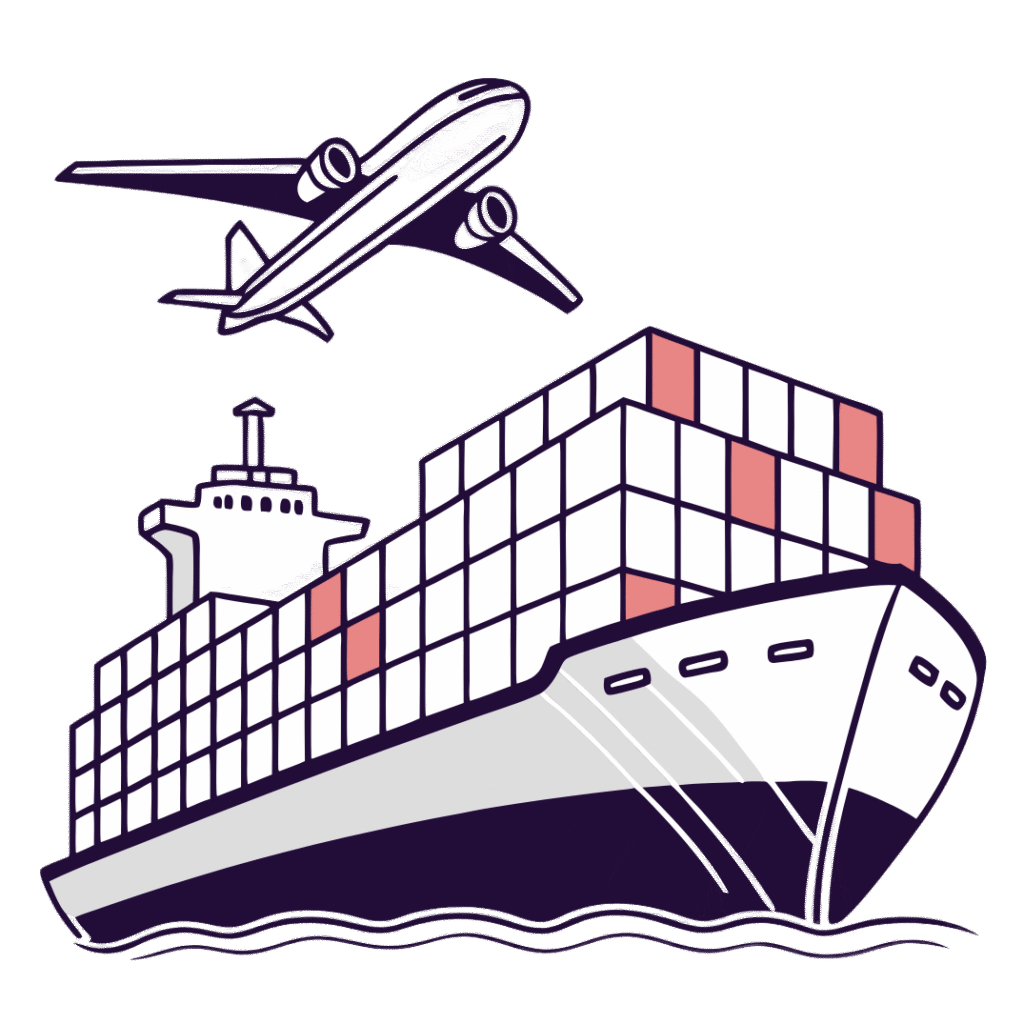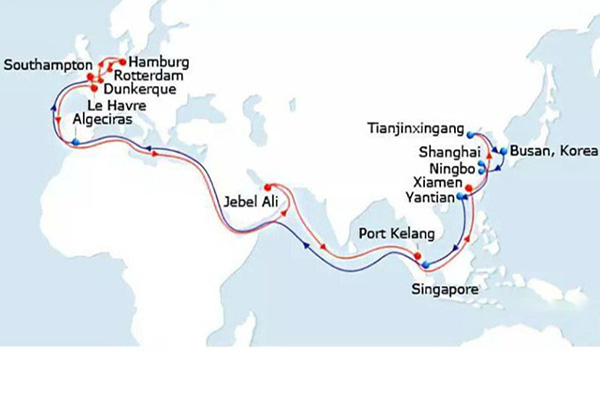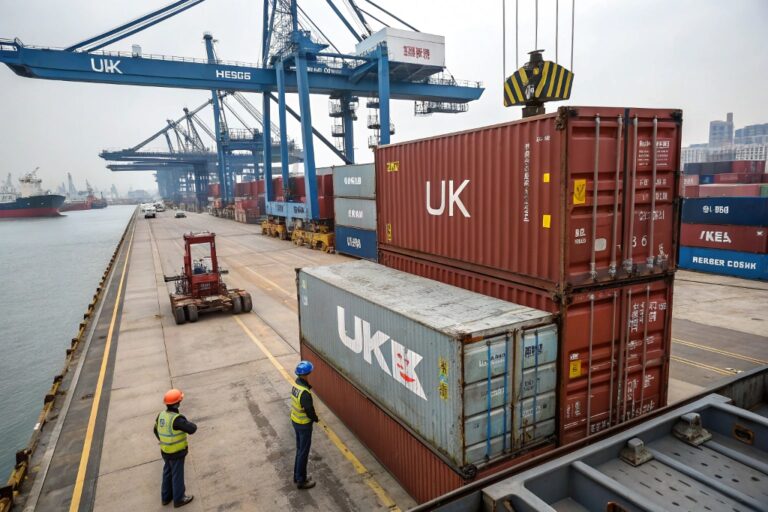When dealing with international markets, bridging cultural and logistical differences is essential for success and smooth operations.
You need an agent in China to facilitate communication, handle negotiations, oversee quality control, and navigate local regulations and market dynamics. They streamline the procurement process and ensure you achieve optimal deals.
An agent provides essential local insights and expertise that can lead to substantial business advantages and operational efficiency.
What are the risks of shipping through an agent from China?
The myriad risks in engaging an agent necessitate careful consideration and informed decision-making.
Risks include potential communication breakdowns, dependency resulting in limited control over shipments, potential integrity issues, and unexpected costs. Reliability varies substantially across different agents, demanding thorough vetting.

Risk Reduction Strategies:
- Vet Thoroughly: Conduct background checks and seek reputable testimonials.
- Contract Scrutiny: Ensure transparent fees and comprehensive service details in contracts.
- Progress Tracking: Regular updates on shipment progress protect against mismanagement.
- Backup Planning: Maintain contingency strategies in case of agent inefficiency.
- Quality Assurance: Oversee quality control processes vigilantly.
Engaging reliable agents with a solid operational framework diminishes potential negative impacts significantly.
Why should I avoid bad China sourcing agents?
A poor choice in sourcing agents can lead to extensive operational and financial ramifications, limiting growth potential.
Avoiding bad sourcing agents is crucial because they can lead to inferior product quality, ethical violations, inflated costs, diminished business reputation, delayed shipments, and strained supplier relationships. Diligence in agent selection prior to engagement is imperative.
Identification Tactics:
- Investigate Reputation: Look for consistent positive feedback or alarming reviews.
- Seek Honest Communication: Prioritize transparency in all dealings and inquiries.
- Visit Sites: Conduct physical factory visits when feasible for authenticity confirmation.
- Establish Contracts: Create thorough contracts detailing responsibilities and expectations.
- Monitor Initial Engagement: Use smaller test orders initially to gauge performance.
Prioritize agents with a proven track record for reliability, ensuring sustainable business expansion.
Should I use a sourcing agent?
The decision to employ a sourcing agent hinges on multiple factors, including your familiarity with market dynamics and scale of operations.
Using a sourcing agent can benefit businesses by offering local expertise, connecting with reliable suppliers, negotiating favorable terms, and ensuring high-quality standards. However, do assess their cost-effectiveness and reliability before engagement.

Evaluation Considerations:
- Market Knowledge: Verify the agent’s expertise within your specific industry.
- Success Metrics: Review past customer experiences for assurance.
- Financial Impact: Compare agent costs against realized savings through negotiations.
- Quality Monitoring: Ascertain robust quality control practices.
- Scalability Ability: Evaluate if the agent can accommodate your growth trajectory.
Sourcing agents can enhance procurement efficiency, but thorough assessment is essential prior to selection.
What is the commission for sourcing agents in China?
Understanding the financial aspect through commission structures informs strategic budgeting and expense calculations.
The commission for sourcing agents in China typically ranges from 3% to 10% of the transaction value, varying based on complexity, effort involved, and nature of the products sourced. Detailed negotiations can refine these rates.
Commission Considerations:
- Scope of Service: Comprehensive service levels often merit higher rates.
- Market Norms: Investigate standard commission rates within your industry niche.
- Negotiation Power: Employ negotiation to attain optimal mutually beneficial agreements.
- Payment Terms: Clarify terms for payment timing aligned with service delivery.
- Impact Analysis: Examine whether commissions align proportionately with cost reduction benefits.
Transparent discussions backed by ample industry insights enable justified commission structures.
What is a need Chinese sourcing agent?
Engaging a Chinese sourcing agent is often necessary to bridge business objectives and practical execution seamlessly.
A Chinese sourcing agent is essential for facilitating communication with local suppliers, providing market insights, overseeing quality control, handling negotiation and contractual obligations, and navigating complex regulatory environments to ensure optimal sourcing outcomes.
Agent Contributions:
- Communication Channel: Overcoming language and cultural barriers effectively.
- Supplier Liaison: Presenting a curated list of reputable, quality-assured suppliers.
- Market Analysis: Expert navigation of dynamic market conditions and ongoing trends.
- Quality Assurance: Executing stringent quality control strategies throughout the procurement process.
- Regulatory Savvy: Overseeing compliance with industry and regional standards confidently.
They act as your eyes and ears on the ground, ensuring business intentions translate into effective actions.
What are the disadvantages of sourcing?
The sourcing landscape encompasses notable drawbacks, which can detract from business profitability if not effectively managed.
Disadvantages include potential quality inconsistency, elevated costs, time-intensive supplier vetting, ethical uncertainties, dependency on external entities, and possible regulatory challenges. Active mitigation strategies often involve multidimensional planning.

Disadvantage Mitigation:
- Supplier Diversity: Engage diversified supplier networks to minimize dependency.
- Quality Protocols: Implement rigorous quality assurance procedures to ensure consistency.
- Cost Negotiations: Tactful negotiations to alleviate excessive expense realities.
- Ethical Timberlines: Confirm ethical compliance through external audits or certifications.
- Regulatory Trainings: Conduct continuous education surrounding regulatory updates.
Professionally navigating sourcing complexities curtails detriments substantially and enhances value for your business.
What is the difference between Alibaba and sourcing agent?
The distinction between Alibaba and sourcing agents lies in operational and engagement functionalities, determining effective procurement pathways.
Alibaba is an online platform hosting a multitude of suppliers, facilitating direct buyer-seller transactions globally, whereas a sourcing agent offers personalized service—conducting negotiations, quality checks, and streamlining logistics directly within local market contexts.
Comparative Aspects:
| Feature | Alibaba | Sourcing Agent |
|---|---|---|
| Tool | Online marketplace search | Personalized supplier negotiation |
| Engagement | Direct transactions | Mediated procurement |
| Quality Control | Buyer’s responsibility | Agent’s prerogative |
| Supplier Vetting | Self-driven | Agent-conducted |
| Logistics | Buyer-arranged | Agent-handled |
The decision often leans on business scope and desired service specificity, highlighting comparative advantages.
What is the best way to source products from China?
Sourcing excellence depends on strategic decisions and embracing a structured procurement approach to secure optimal terms.
The best way to source products involves blending direct platform engagement like Alibaba with agent-led negotiations, ensuring supplier reliability, confirmed quality standards, cost-effectiveness, and seamless logistical execution supported by regional expertise.
Proactive Sourcing Tactics:
- Platform Research: Start with thorough investigation through digital platforms for preliminary lists.
- Engage Agents: Harness agent expertise for navigating regulatory and quality considerations.
- Supplier Validation: Implement factory audits and in-depth supplier vetting rigorously.
- Negotiate Terms: Ensure favorable service agreements covering cost, quality, and timelines.
- Manage Logistics: Establish robust logistics management practices fostering smooth transitions.
An integrated approach leverages holistic advantages, ensuring comprehensive sourcing success efficiently.







